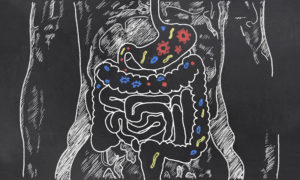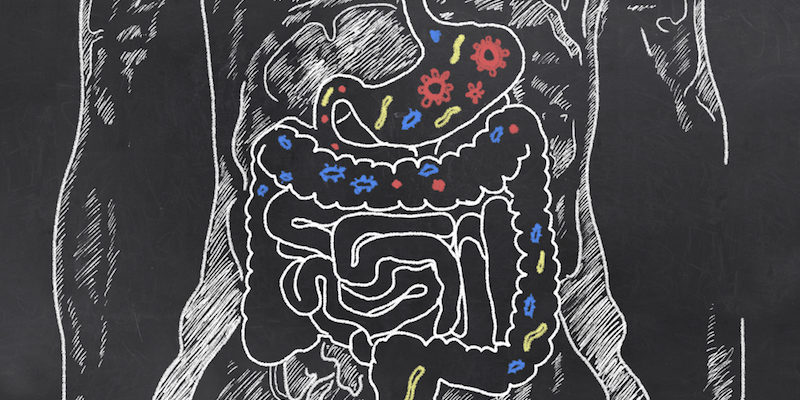 March 20, 2019
March 20, 2019
March is colorectal cancer (CRC) awareness month. The American Cancer Society now recommends that people at average risk for CRC start regular screening at age 45. What are some things you should know about prevention and getting screened?
What can you do to prevent CRC?
–> Fiber intake: diets high in fiber from fruits, vegetables, whole grains, nuts, seeds and legumes can be protective against CRC. Compared with non-vegetarians, vegetarian dietary patterns have been associated with a decreased risk of CRC. Soluble fiber, which is fermented by gut bacteria, leads to the production of short-chain fatty acids like butyrate, which has anti-cancer properties in the colon. Include as much fiber in the diet from whole plant foods as possible.
–>Red and processed meat intake: long-term consumption of red or processed meats appears to be associated with an increased risk of CRC. High-temperature cooking of meat (eg barbecuing) can also contribute to increased risk, possibly by the production of polyaromatic hydrocarbons and other carcinogens produced in the charring process. Limit or avoid intake of red/processed meats.
–>Physical activity: regular exercise is associated with decreased CRC risk. The mechanism underlying this benefit is not yet clear, but it’s important for people to incorporate regular physical activity into their lifestyles in order to decrease risk of CRC. In addition, obesity is a risk factor for CRC and also increases the risk of dying from CRC.
–>Aspirin: regular use of aspirin and other NSAIDs is associated with a 20-40% decrease in the risk of high-risk (adenomatous) polyps and CRC. How aspirin and NSAIDs work to protect against CRC isn’t clear, and the minimum dose and duration of ASA to get the protective effect is still uncertain. Whether these drugs should be prescribed in all patients isn’t clear, but you should discuss with your doctor if aspirin is recommended for you based on your individual case and other risk factors.
–>Smoking: smoking cigarettes is a risk factor for CRC and also increases the chances of dying from CRC. It’s also a risk factor for all types of polyps, including high-risk (adenomatous) polyps that can eventually turn into cancer. Smoking should be avoided.
–>Vitamin D status: studies have shown that vitamin D deficiency is linked to the risk of many cancers, including CRC. Get your vitamin D levels checked to ensure you are not deficient.
When might you need more frequent screening for CRC?
–>Hereditary colorectal cancer syndromes, which include familial adenomatous polyposis (FAP) and Lynch syndrome are the most common familial colon cancer syndromes (although together they account for only 5% of CRC cases). People with these diseases have a much higher risk of developing colon cancer than those in the general population and should speak to their gastroenterologist regarding getting the appropriate testing and frequent screening for CRC.
–>Personal or family history of CRC or high-risk (adenomatous) polyps: these people have a higher risk of getting CRC in the future, especially if they have a first-degree relative with CRC (risk increases approximately twofold over that of the general population) and even more so if the case was diagnosed when the relative was <50 years of age. They speak to their gastroenterologist regarding getting screened earlier and more frequently for CRC.
–>Inflammatory bowel disease (IBD), including Crohn’s disease or ulcerative colitis: patients with these diseases tend to have chronic inflammation in their colon and intestines, which can increase the risk of CRC. The increase in risk of colon cancer begins several years after the initial diagnosis, and is especially pronounced in patients with large areas of the colon affected, the longest disease duration and in those with active inflammation. All patients with IBD should talk to their gastroenterologist about when to start screening for colon cancer.
–>Abdominal radiation: survivors of childhood cancer who received radiation therapy are at increased risk of CRC as adults. CRC screening should begin 10 years after radiation (or at age 35, whichever occurs last), and depending on how much radiation was received they should get a colonoscopy every 5 years.
–>Transplant status: patients who have received organ transplants, such as kidney transplants, are then maintained on long-term immunosuppression. They can have a higher risk of developing CRC, and should discuss more frequent screening with their gastroenterologist.

